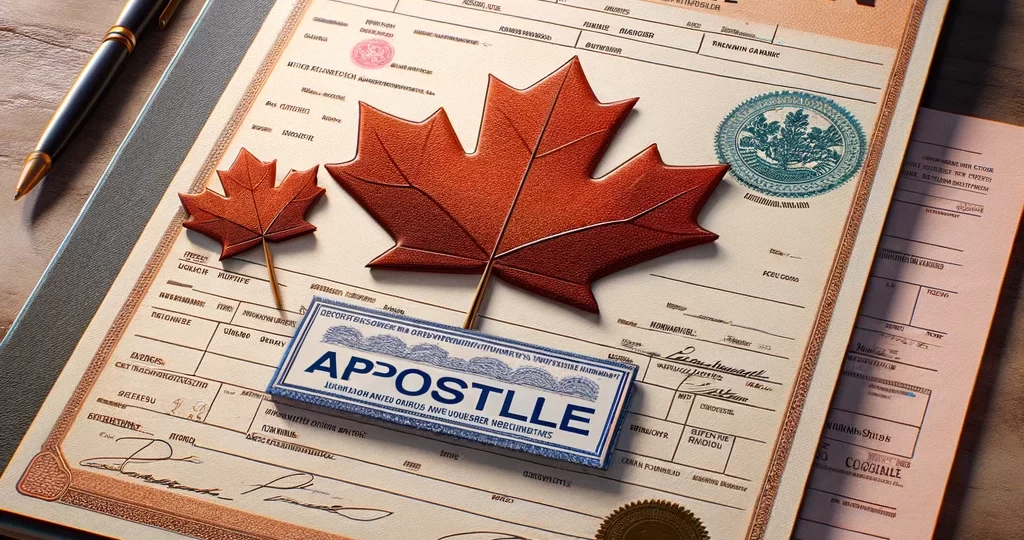
Authentication confirms the genuineness of a public official’s signature on a document. In many countries, this process is known as apostille. Once authenticated, the document may require legalization by the destination country’s authorities (e.g., embassy, high commission, or consulate in or accredited to Canada). To be authenticated, the document must bear an original, recognized signature (and seal, if applicable).
Canada is a party to the Apostille Convention, which simplifies the authentication process by eliminating the need for legalization for documents intended for use in other convention countries. Documents authenticated by a Canadian competent authority will receive an apostille certificate, or “allonge,” a separate document securely affixed to the authenticated document.
What are the documentary requirements?
Alberta public documents
The provincial competent authority can issue an apostille for the signature of the director of Vital Statistics for original birth, marriage and death certificates issued in Alberta.
*a laminated or wallet size Vital Statistics document is not accepted
If the Vital Statistics document is laminated or wallet size:
- You must order an updated original Vital Statistics document from a registry agent.
Certificate of Divorce
Ensure that the clerk of the court originally signs the document and seals it with an impressed court seal.
Education records
Contact the school, college or university you attended. The document must be certified by an official at the educational institution stating the document is an official record or a true copy of the original document.
Other documents
For other documents, such as power of attorney, certificates of life, export or corporate records etc. get a notarized copy of the document:
- Ensure the notary has signed, sealed and dated the copy.
How to get an apostille in Alberta, Canada?
*Rush, walk-in and while-you-wait services are not available.
- Send your documents by mail or courier.
Step 1. Gather your documents
Be sure your documents meet the requirements.
Use Apostille Request Form as a cover sheet to list your document(s).
If you make your own cover sheet, include:
- your name and contact information:
- telephone number
- email address
- your return address
- the country in which the document will be used
Step 2. Pay online and get your receipt
An apostille costs $10 per document.
- You will be emailed a receipt after your payment has been processed.
- Print the receipt and include it with your documents as proof of payment.
Step 3. Mail your documents and payment receipt
Be sure your documents meet the requirements before you send them.
Send by mail or courier to the address:
- the Apostille Request Form (or a cover sheet like it)
- your document(s)
- eServices proof of payment
If you want them to return your processed documents by courier:
- Include a prepaid waybill.
- Handwritten waybills are not accepted – if a handwritten waybill is included, they will return the processed documents via Canada Post without notice.
If you want them to return your processed documents with a prepaid envelope from Canada Post:
- Include the prepaid Priority Courier or Xpresspost envelope.
- The return mailing address must be filled out, legibly and in full.
- Keep any tracking information before submitting the envelope.
After you submit your document(s)
Documents are processed in the order they are received in their office.
- Allow 5 to 7 business days for processing.
- If it cannot be authenticated, your document will be returned to you with explanation in writing why it could not be authenticated.
Unless you provided a prepaid envelope, or waybill for a courier:
- they will mail your documents via Canada Post.
- Include a return self-addressed envelope to facilitate this process.
Address and contact number:
Official Documents & Appointments
111-9833 109 ST NW
EDMONTON AB T5K 2E8
Phone: 780-427-5069
Email: official.documents@gov.ab.ca
Source:
Date Modified: 2024-01-08


